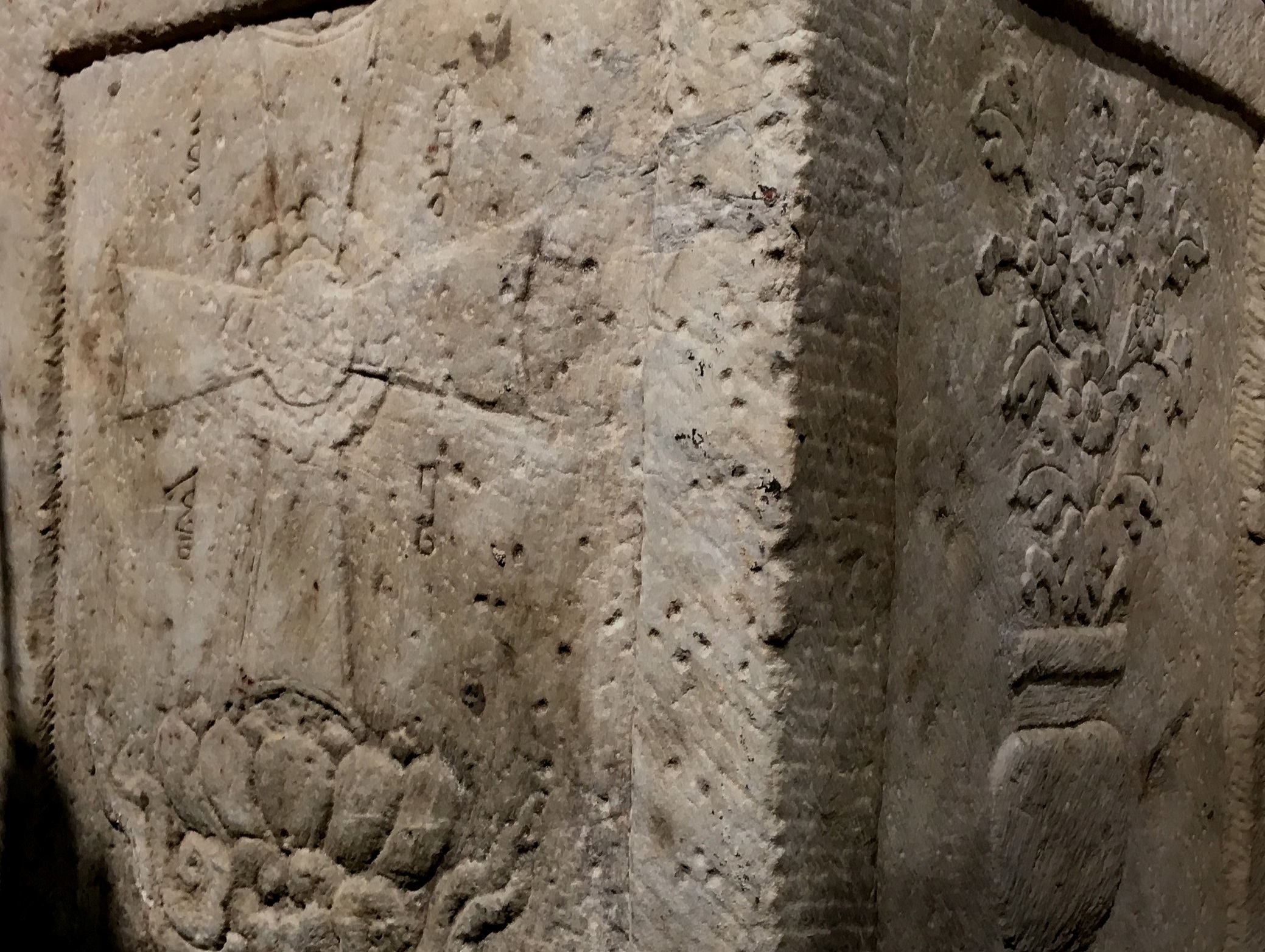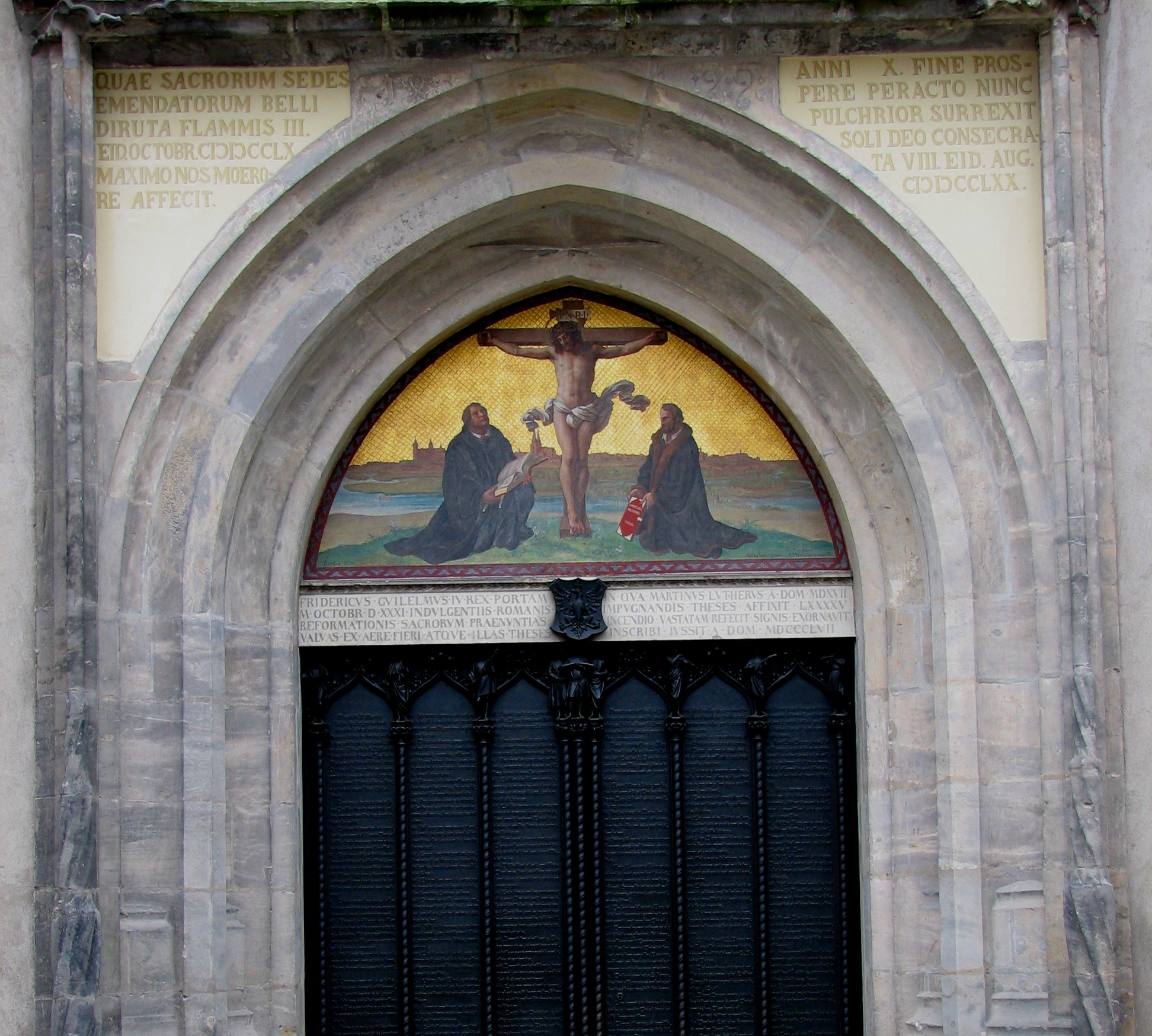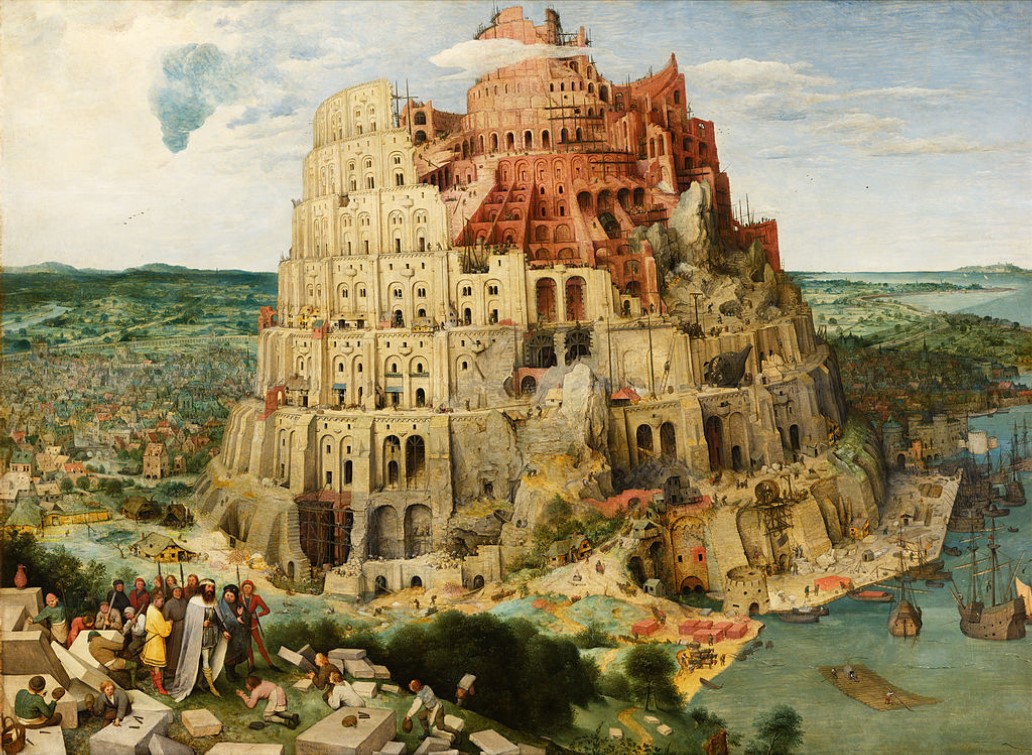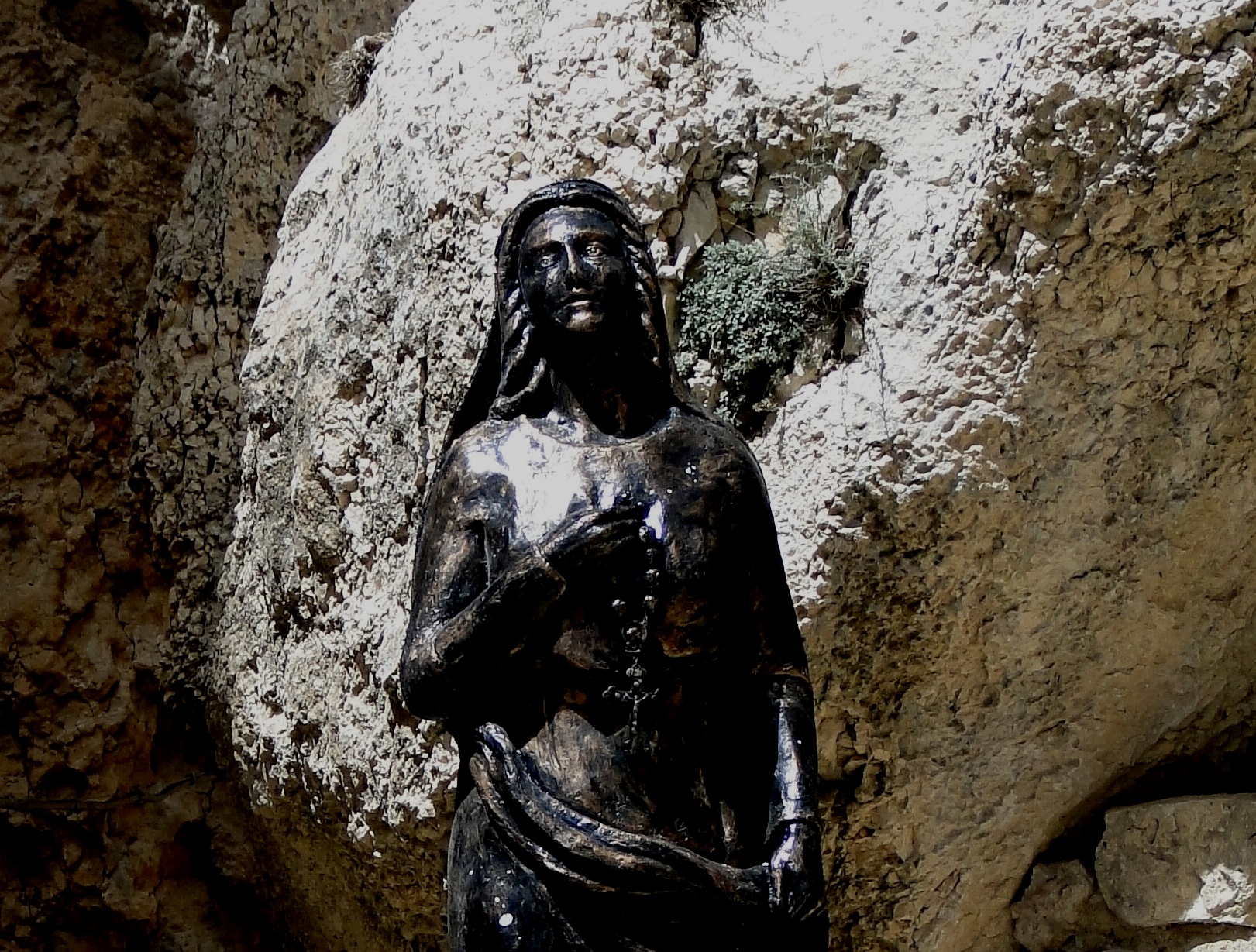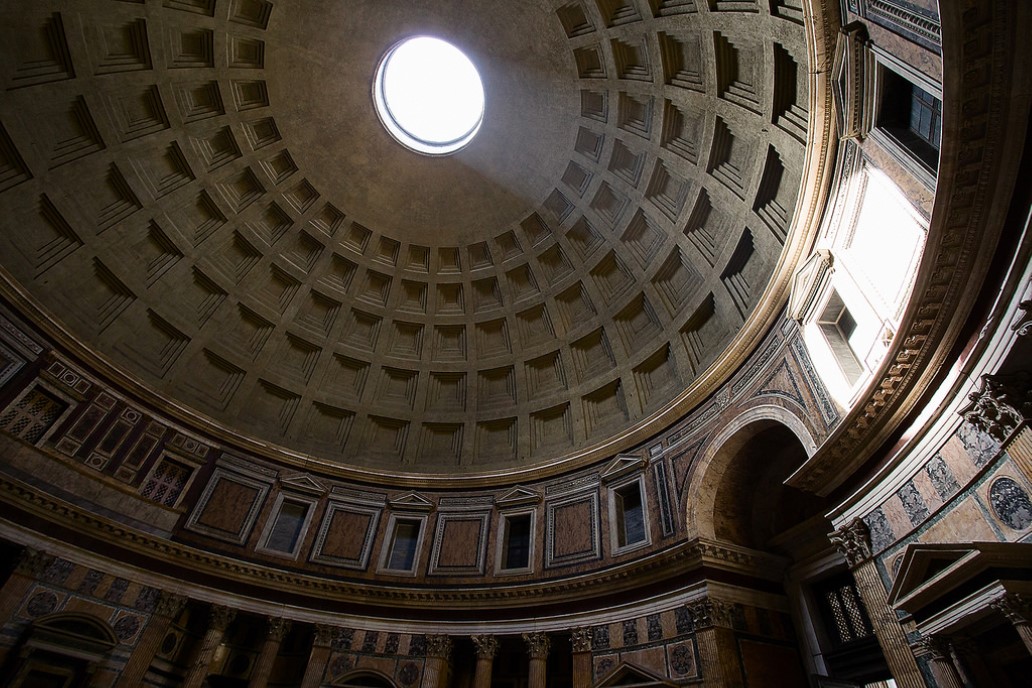The Protestant Churches
Photograph: All Saint’s Church, where Martin Luther famously nailed his 95 theses in protest of the medieval Catholic Church, launching the diverse movements known together as the Protestant Reformation. Photo credit: AlterVista | CC3.0, Wikimedia Commons.
Introduction
The selection of perspectives on the various Protestant Churches are guided by the attempt to understand the schisms and reform efforts that occurred from 1517 AD onward.
Resources on Protestant Church Organization
Randy L. Maddox, John Wesley and Eastern Orthodoxy: Influences, Convergences and Differences. Asbury Theological Journal, 1990, Volume 45, Number 2. “What is not as often noted is that he tended to value the Greek representatives over the Latin. It was a preference he inherited from his father. It deepened during his Oxford years as he studied newly available editions of patristic writings with his fellow "methodist," John Clayton. As such, it is not surprising that Greek theologians predominate when Wesley gives lists of those he admires or recommends for study. Frequently cited were Basil, Chrysostom, Clement of Alexandria, Clement of Rome, Ephraem Syrus, Ignatius, Irenaeus, Justin Martyr, Origen, Polycarp and (Pseudo-)Macarius. By contrast, references to Augustine, Cyprian and Tertullian were relatively rare.”
David F. Ford and Rachel Muers, The Modern Theologians: An Introduction to Theology Since 1918. Wiley-Blackwell | Amazon page, 2005. Ford and Muers point out that the organizational context in which Protestant theology is studied affects whether theologians dialogue with other fields, like archaeology, classics, literature, history of the early church and the Ancient Near East, etc. In Britain, theologians were part of the universities, so they did, to their credit. In Germany and the U.S., theologians were largely in seminaries, so they tended to develop without the dialogue, to their detriment.
Benjamin Wyman, John & Charles Wesley and the History of Methodism. Benjamin Wyman, Vimeo video, 2010.
Cyril Jenkins, The End of Catholicity Part 1, Part 2, Part 3. Lux Christi blog, May 2012.
Tim Keller, Parachurch Ministries Are Important. Redeemer City to City, Sep 16, 2013.
Christena Cleveland, Kobe Bryant, Self-Esteem, and Disunity in Christ. blog, Oct 15, 2013.
Matt Smethurst, Where Did All These Calvinists Come From? The Gospel Coalition, Oct 23, 2013.
Scot McKnight, That Familiar Voice. Jesus Creed | Patheos, Apr 30, 2014.
David Bates, The Reformers and the Fathers. Restless Pilgrim blog, May 14, 2014.
Lynn Parramore, Americans Are Turning Away from Organized Religion in Record Numbers. Alternet, Mar 2, 2015.
Sarah Eekhoff Zylstra, Pew: Evangelicals Stay Strong as Christianity Crumbles in America. Christianity Today, May 11, 2015.
Rod Dreher, The Evangelical Advantage. The American Conservative, May 20, 2015.
G. Jeffrey MacDonald, Oldest U.S. Graduate Seminary to Close Campus. Religion News Service, Nov 13, 2015. About Andover Newton.
Stanley Hauerwas, The Reformation Is Over. Protestants Won. So Why Are We Still Here? Washington Post, Oct 27, 2017.
Stanley Hauerwas, After the Reformation: How to be Neither Catholic Nor Protestant. ABC Religion and Ethics, Nov 1, 2017. Hauerwas includes the contribution of an Anabaptist perspective to political ethics, and a fascinating discussion of Thomas Aquinas and Karl Barth.
Jonathan Leeman, A Time for Civil Disobedience? A Response to Grace Community Church’s Elders. 9Marks, Jul 25, 2020. In the context of the COVID-19 pandemic, provides some helpful reminders that the form of gathering is not sacrosanct.
Craig Truglia, The Orthodox Doctrine of Justification: The Biblical Teaching. Orthodox Christian Theology, Dec 11, 2020. Truglia provides a helpful start to identifying the biblical and Second Temple texts that are relevant. It is limited, however, because Truglia does not coordinate the meaning of “justification” with the Sinai covenant as a narrative. The Sinai covenant has in view a “restoration from exile” rooted in “circumcision of the heart”. Dt.30:6.. Thus, Paul’s coordination of “justification” with “resurrection”. Rom.4:25. and “circumcision of the heart”. Rom.2:28 - 29. needs to be understood first, so that we understand Paul’s vision of “union with Christ” and the meaning of his conceptual distinction between “faith and works, faith vs. works” as specific to faith in Jesus and works of the Jewish Sinai covenant. Truglia believes it is possible to compare the two teachings of “justification” without first explaining the theories of atonement reposing beneath them.
Paul Gavrilyuk, The Ashbury Revival and Lent: An Orthodox Appreciation. Feb 28, 2023. Valuable for its irenic and cautious but optimistic spirit, and touch points to Orthodox Church history.
Church Unity: Topics:
This page is part of our section on Church Unity which concerns the Assyrian Church of the East, which separated over the Council of Ephesus in 431, the Oriental Orthodox Churches, which separated over the Council of Chalcedon of 451, the Catholic-Orthodox split of 1054, and the Protestant Churches beginning 1517.

